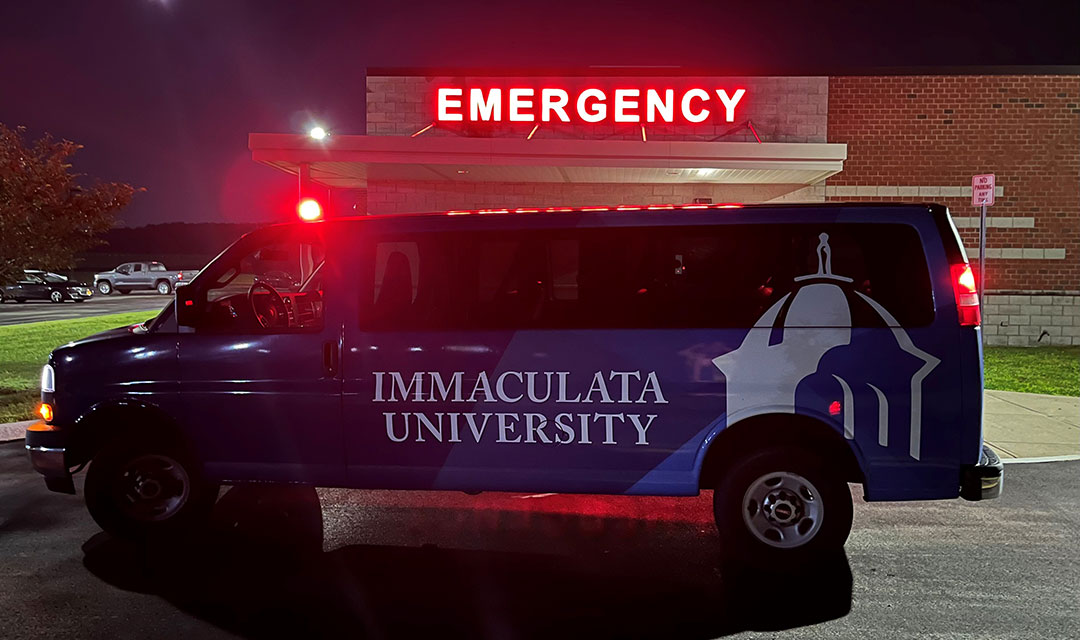By Elizabeth Cerami
It’s the age-old adage: a disaster can strike at any time. Unfortunately, this saying has gained new significance in recent years as an increasing number of hurricanes, tornadoes, floods, fires and earthquakes have impacted more areas across the United States, often with devastating consequences, making preparedness essential. According to NOAA.gov, National Weather Service forecasters noted that the 2024 Atlantic hurricane season, spanning from June 1 to Nov. 30, was marked by above-average activity, with a record-breaking surge following a mid-season lull.
“Unfortunately, climate change is generating more frequent and more destructive storms, creating a need for emergency management professionals,” says George Schwartz ’17 Ed.D., associate professor and director of the bachelor’s degree program in emergency planning and management (EPM) at Immaculata University.
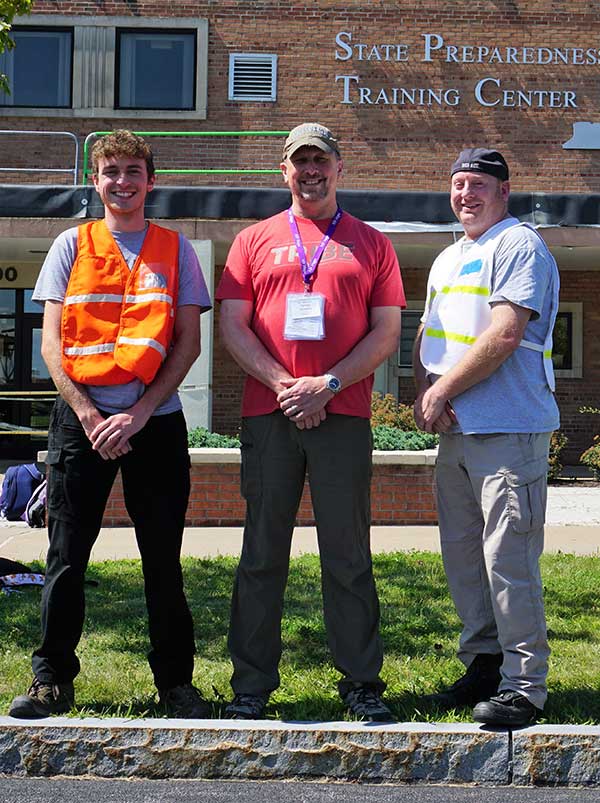
When preparing future emergency responders, Schwartz emphasizes planning, management and leadership as the foundational elements of Immaculata’s EPM program.
According to Schwartz, “We prepare students to develop an emergency operations plan—something not many programs offer—understanding that plans may change during a disaster, which is why strong leadership skills are also essential to help teams adapt and refocus on saving lives and stabilizing the situation.”
Immaculata’s EPM program also focuses on preparing students to become well-rounded professionals equipped with the skills needed in our increasingly complex and dynamic world. When a disaster affects a community, government officials, emergency responders, medical professionals, technology specialists and communicators all must step up and work together. Having a solid, cohesive plan is easier when you can view an operation from all levels and their respective components.
Immaculata’s EPM program is recognized by the Federal Emergency Management Agency (FEMA). FEMA’s initiative encourages collaboration between academia and emergency management to promote ongoing learning and innovation in addressing national challenges. In 2019, the University was chosen to host a collaborative session for FEMA Region III, which includes Pennsylvania, Delaware, D.C., Virginia, West Virginia and Maryland.
Schwartz, a retired officer in the Pennsylvania National Guard who served in response operations for several natural disasters and now volunteers with the humanitarian assistance organization Team Rubicon, understands the importance of being equipped with the necessary skills to handle emergencies and natural disasters.
Over the past two summers, he has taken students to upstate New York for the New York Hope field training exercise (FTX), as part of the EPM 205 Disaster Response Field Experience course. Sponsored by a consortium of schools, including Immaculata, FTX participants include college students studying emergency management and disaster response.
“Hands-on experience is essential for emergency professionals, so I have been seeking opportunities, internships and partnerships, such as the FTX, to provide that experience for our students,” explained Schwartz.
The goal of the event is to simulate a realistic environment in the immediate aftermath of a disaster. The simulation allows students to apply skills they might not typically use outside of a real emergency and to experience the pressures they will face in actual situations, where their decisions and actions can significantly impact both those affected and the emergency responders.
Pasquale Travaglini ’26, who attended the FTX last August, found the Emergency Operations Center event led by Schwartz to be the most challenging. The event utilized New York State’s Mobile Command Post #1, which is used by the governor during emergencies. He described attendees having to juggle reports coming in by email, phone and radio while also supporting field units as a rising number of incidents occurred.
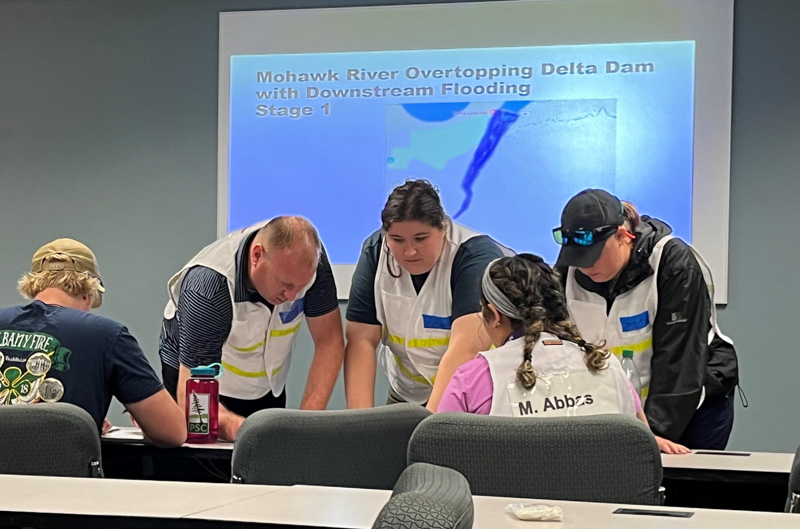
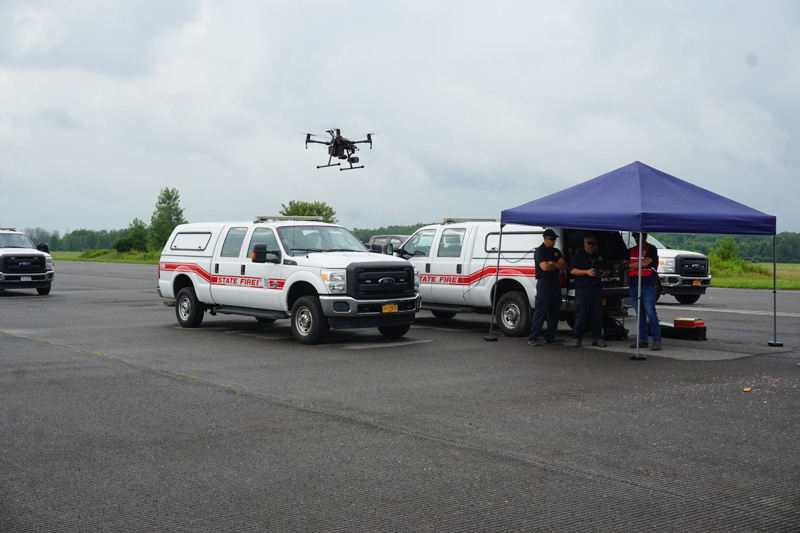
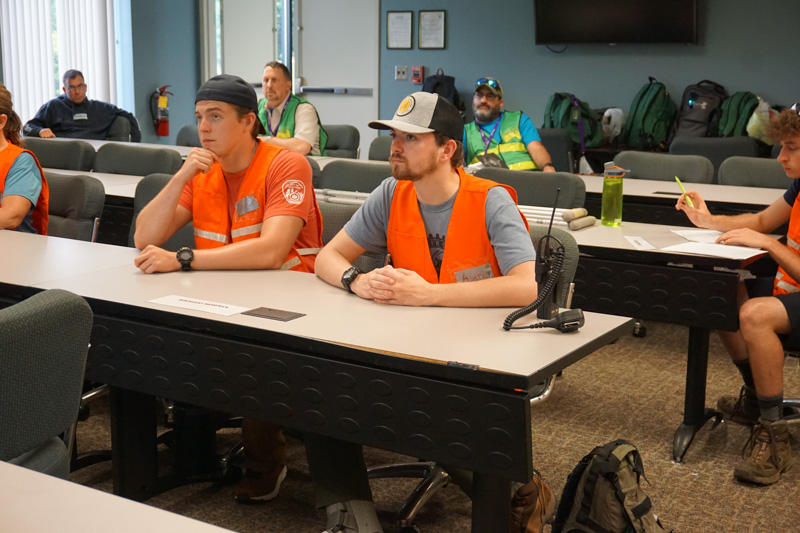
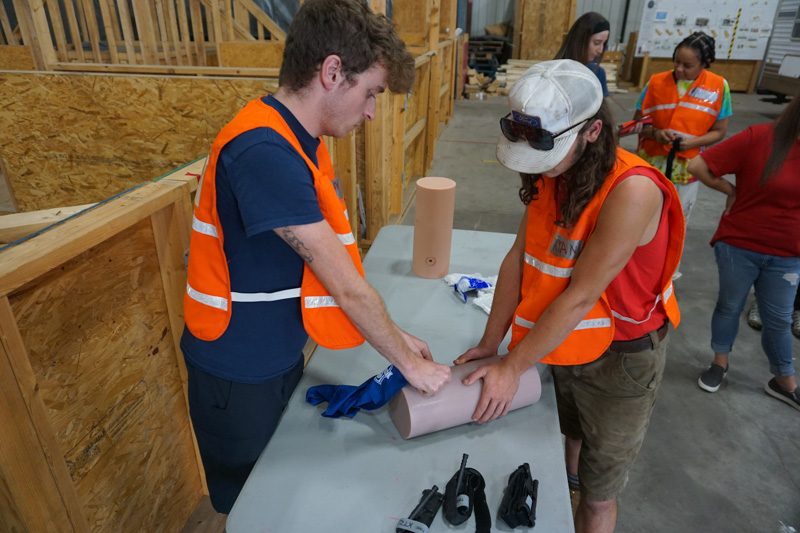
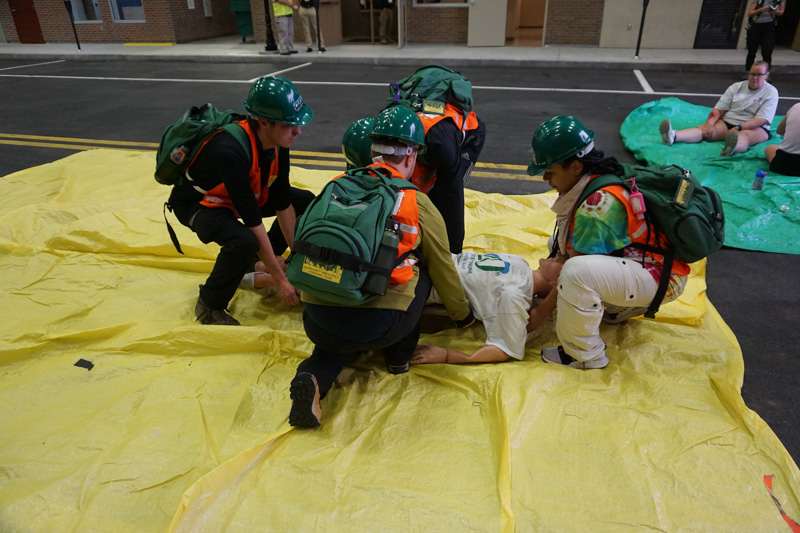
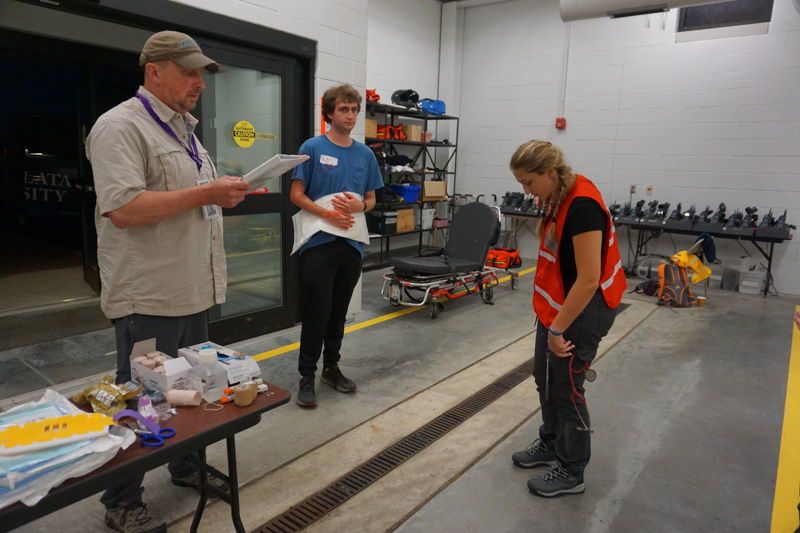
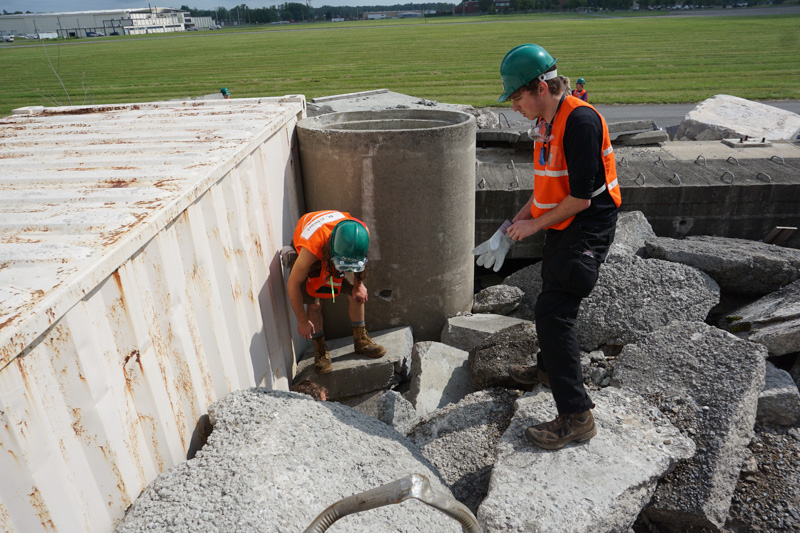
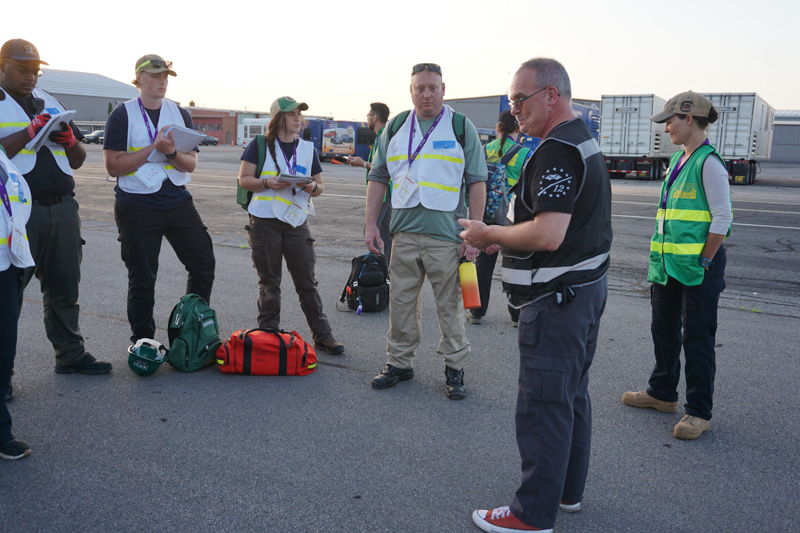
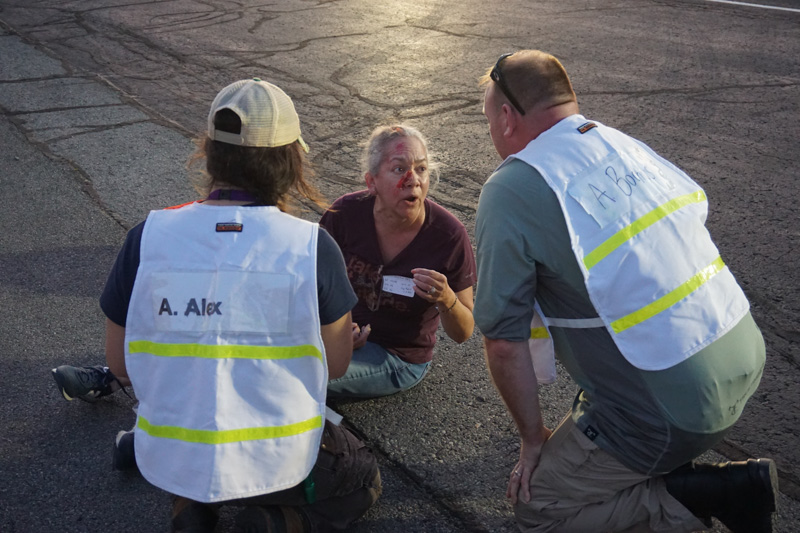
Schwartz expressed that the students genuinely care about the simulations and the EPM program. They understand the importance and the magnitude of the profession they’ve chosen while recognizing the profound emotional impact of their work, as they will be interacting with people on some of the worst days of their lives.
While no amount of preparation can fully equip someone outside the emergency services field for the moments during and immediately after a disaster, having a plan in place can help mitigate its damaging effects. Schwartz believes that it is essential that everyone prioritize emergency preparedness. “We should all be more mindful about preparing ourselves and our families for disasters, because they have the potential to impact all of us.”

